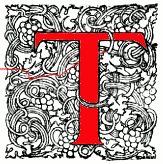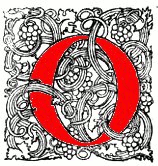The following passage come from the Project Gutenberg text of Macaulay’s 1830 review of Henry Hallam’s The Constitutional History of England from the Accession of Henry VII to the Death of George II (1829) in the Edinburgh review shows Macaulay at his polemical best, repeatedly using parallel sentence structure to hammer home his points.. — George P. Landow
Charles I’s Character

he abilities of Charles were not formidable. His taste in the fine arts was indeed exquisite; and few modern sovereigns have written or spoken better. But he was not fit for active life. In negotiation he was always trying to dupe others, and duping only himself. As a soldier, he was feeble, dilatory, and miserably wanting, not in personal courage, but in the presence of mind which his station required. His delay at Gloucester saved the parliamentary party from destruction. At Naseby, in the very crisis of his fortune, his want of self-possession spread a fatal panic through his army. The story which Clarendon tells of that affair reminds us of the excuses by which Bessus and Bobadil explain their cudgellings. A Scotch nobleman, it seems, begged the King not to run upon his death, took hold of his bridle, and turned his horse round. No man who had much value for his life would have tried to perform the same friendly office on that day for Oliver Cromwell.
Charles I’s Execution Transformed Him into a Political and Religious Force

ne thing, and one alone, could make Charles dangerous, a violent death. His tyranny could not break the high spirit of the English people. His arms could not conquer, his arts could not deceive them; but his humiliation and his execution melted them into a generous compassion. Men who die on a scaffold for political offences almost always die well. The eyes of thousands are fixed upon them. Enemies and admirers are watching their demeanour. Every tone of voice, every change of colour, is to go down to posterity. Escape is impossible. Supplication is vain. In such a situation, pride and despair have often been known to nerve the weakest minds with fortitude adequate to the occasion. Charles died patiently and bravely; not more patiently or bravely, indeed, than many other victims of political rage; not more patiently or bravely than his own Judges, who were not only killed, but tortured; or than Vane, who had always been considered as a timid man. However, the King’s conduct during his trial and at his execution made a prodigious impression. His subjects began to love his memory as heartily as they had hated his person; and posterity has estimated his character from his death rather than from his life.
To represent Charles as a martyr in the cause of Episcopacy is absurd. Those who put him to death cared as little for the Assembly of Divines as for the Convocation, and would, in all probability, only have hated him the more if he had agreed to set up the Presbyterian discipline. Indeed, in spite of the opinion of Mr. Hallam, we are inclined to think that the attachment of Charles to the Church of England was altogether political. Human nature is, we admit, so capricious that there may be a single sensitive point in a conscience which every where else is callous. A man without truth or humanity may have some strange scruples about a trifle. There was one devout warrior in the royal camp whose piety bore a great resemblance to that which is ascribed to the King. We mean Colonel Turner. That gallant Cavalier was hanged, after the Restoration, for a flagitious burglary. At the gallows he told the crowd that his mind received great consolation from one reflection: he had always taken off his hat when he went into a church.
The character of Charles would scarcely rise in our estimation, if we believed that he was pricked in conscience after the manner of this worthy loyalist, and that while violating all the first rules of Christian morality, he was sincerely scrupulous about church-government. But we acquit him of such weakness. In 1641, he deliberately confirmed the Scotch Declaration which stated that the government of the church by archbishops and bishops was contrary to the word of God. In 1645, he appears to have offered to set up Popery in Ireland. That a King who had established the Presbyterian religion in one kingdom, and who was willing to establish the Catholic religion in another, should have insurmountable scruples about the ecclesiastical constitution of the third, is altogether incredible. He himself says in his letters that he looks on Episcopacy as a stronger support of monarchical power than even the army. From causes which we have already considered, the Established Church had been, since the Reformation, the great bulwark of the prerogative. Charles wished, therefore, to preserve it. He thought himself necessary both to the Parliament and to the army. He did not foresee, till too late, that, by paltering with the Presbyterians, he should put both them and himself into the power of a fiercer and more daring party. If he had foreseen it, we suspect that the royal blood which still cries to Heaven, every thirtieth of January, for judgments only to be averted by salt-fish and egg-sauce, would never have been shed. One who had swallowed the Scotch Declaration would scarcely strain at the Covenant. [I, 499-502]
Bibliography
Macaulay, Thomas Babington. Critical, Historical, and Miscellaneous essays. 6 vols. New York: Sheldon and Company, 1860. Project Gutenberg text produced by David Widger from page images generously provided by the Internet Archive. Web. 21 November 2020.
Last modified 21 November 2020